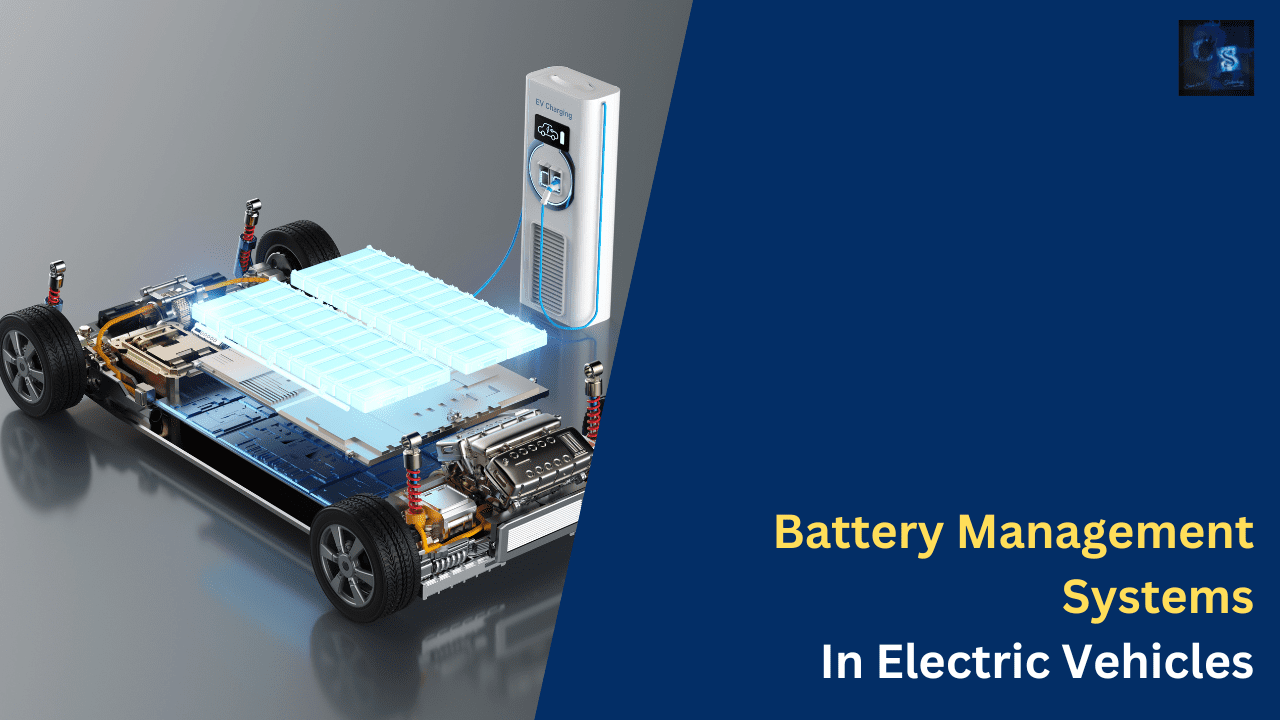Battery Management Systems In Electric Vehicles, BMS Operations
Hello guys, welcome back to our blog. Here in this article, we will discuss battery management systems in electric vehicles, what are the operations of BMS, and what is the need for using it.
If you have any electrical, electronics, and computer science doubts, then ask questions. You can also catch me on Instagram – CS Electrical & Electronics.
Also, read:
- Top 5 Programming Languages Used In The Semiconductor Industry
- What Kinds Of Sensors Are Used In Autonomous Vehicles
- Optical Circuit Breakers, Future Of Circuit Breakers In Power Systems
Battery Management Systems In Electric Vehicles
A Battery Management System (BMS) is a highly intricate and indispensable component within the realm of Electric Vehicles (EVs). Its multifaceted functions and sophisticated algorithms are engineered to meticulously oversee and regulate the performance of the EV’s battery pack. In this extended discussion, we’ll delve deeper into the critical roles and significance of the BMS in the context of electric mobility.
01. Comprehensive Monitoring:
At the heart of its operation, the BMS is a vigilant observer, continuously monitoring several vital parameters that are pivotal to the battery’s health and safety. These parameters include battery voltage, current, temperature, and state of charge (SoC). Such real-time monitoring serves a dual purpose: it ensures that the battery operates within predefined safe limits and allows for precise estimation of the battery’s current state.
02. Safeguarding Battery Health:
Protection is a paramount concern in battery management, and the BMS excels in this domain. It acts as a sentinel, ever-ready to shield the battery from a spectrum of potential threats. These threats encompass overcharging, over-discharging, and overheating, which can be detrimental to the battery’s longevity and overall functionality. If any of these adverse conditions are detected, the BMS swiftly intervenes, potentially disconnecting the battery pack from the charging source or the propulsion system.
03. Cell Balancing Expertise:
Within the battery pack, individual cells often exhibit slight variations in voltage levels due to manufacturing tolerances and operational differences. These voltage imbalances can lead to inefficient battery operation and even premature cell failure. The BMS takes on the crucial role of ensuring that all cells within the pack maintain uniform voltage levels. This process, known as cell balancing, safeguards against overcharging or over-discharging of individual cells, thereby enhancing overall battery health and performance.
04. Range Estimation and User Engagement:
Beyond its protective functions, the BMS serves as a source of valuable information for EV users. By utilizing the data it gathers, the BMS can provide an estimate of the remaining driving range. This feature empowers drivers to make informed decisions regarding their journeys, enhancing the overall user experience and relieving range anxiety.
Benefits Heightened:
Now, let’s delve deeper into the amplified benefits of incorporating a BMS within an EV:
01. Longevity Boost:
The BMS acts as a diligent guardian of the battery, preventing it from venturing into dangerous operating zones. This proactive approach contributes significantly to the extended lifespan of the battery pack, ultimately enhancing the durability and sustainability of the EV.
02. Safety Reinforced:
Safety is non-negotiable in EV design, and the BMS is a linchpin in upholding this principle. By preemptively addressing potential risks, such as overcharging and overheating, the BMS mitigates the likelihood of catastrophic battery failures or safety incidents, thereby reinforcing the overall safety of EVs.
03. Peak Performance Unleashed:
Optimal battery performance is not merely a luxury; it’s a necessity. The BMS ensures that all cells within the battery pack operate harmoniously, optimizing the overall performance of the EV. This translates into efficient energy utilization, better acceleration, and improved driving dynamics.
04. Economical Advantages:
Over the long term, the BMS translates into tangible economic benefits for EV owners. By extending the battery’s useful life and reducing the risk of costly damage, the BMS contributes to a more economical ownership experience.
In Conclusion:
In conclusion, the Battery Management System (BMS) is the unsung hero of Electric Vehicles (EVs). Its unrelenting dedication to monitoring, protecting, and optimizing the battery pack ensures that EVs not only deliver exceptional performance but also adhere to the highest standards of safety and reliability. As the world embraces the electric mobility revolution, the BMS remains at the forefront, supporting the transition towards a sustainable and efficient transportation ecosystem.
This was about “Battery Management Systems In Electric Vehicles“. I hope this article may help you all a lot. Thank you for reading.
Also, read:
- 10 Tips To Maintain Battery For Long Life, Battery Maintainance
- 10 Tips To Save Electricity Bills, Save Money By Saving Electricity
- 100 (AI) Artificial Intelligence Applications In The Automotive Industry
- 100 + Electrical Engineering Projects For Students, Engineers
- 1000+ Control System Quiz, Top MCQ On Control System
- 1000+ Electrical Machines Quiz, Top MCQs On Electrical Machines
- 1000+ MATLAB Simulink Projects For MTech, Engineering Students
- 2024 Is About To End, Let’s Recall Electric Vehicles Launched In 2024

